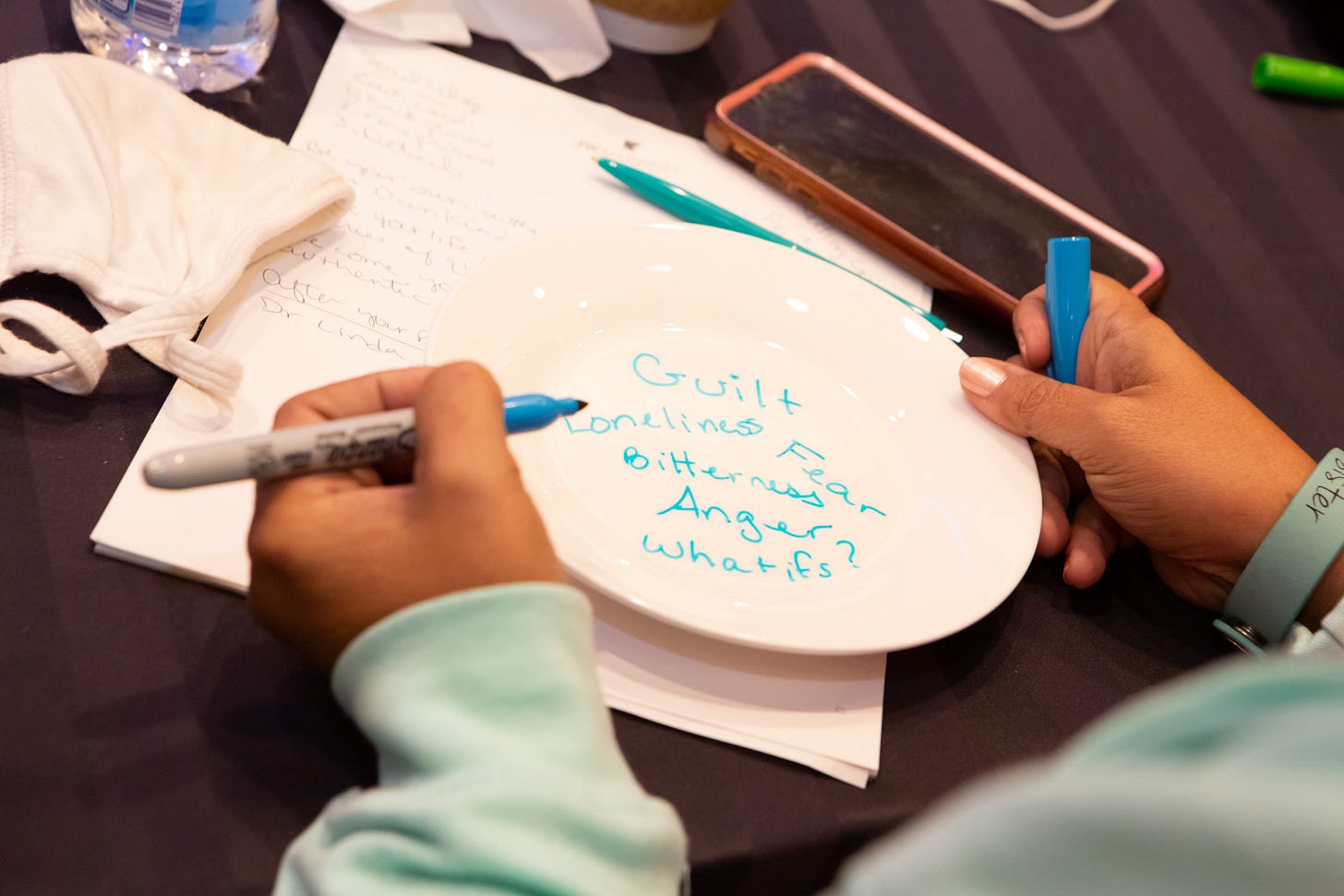When you complete our Widow Empowerment Quiz and discover you're in either the Hope or Heal phase, Modern Widows Club® steps in with personalized support designed specifically for where you are right now. We'll provide complimentary support emails tailored to your unique journey, delivering insights, encouragement, and practical guidance directly to your inbox.
This personalized approach reflects our unwavering commitment to supporting you through widowhood's many complexities. We understand that no two widow journeys are identical, which is why we've developed resources that meet you exactly where you are.
Below is one excerpt from the many journey emails sent to those in the Hope and Heal phases. We share these because we understand an important truth: not every widow's story was a fairy tale.
My Story Wasn't a Fairy Tale
Sometimes when people die, living people will act as though the deceased had no faults. There's even a saying, "don't speak ill of the dead." You may feel as though this makes sense, as the person isn't here to defend themselves, but specifically for the widow who might finally feel free: this societal and cultural expectation is not fair.
When we look back on our marriage after our partner dies, those of us who had a "normal" relationship probably remember mostly good times. For those of us who had marriages that at times felt like a living hell, we may remember more bad times than good.
This article is written for those widows, not for the widows who occasionally argued with their spouse (though this article will be helpful and eye-opening for anyone who reads it, widowed or not).
This is for the widow who had already thought about life without her spouse in it. The widow who had a partner who was unfaithful. The widow who had a partner who was addicted to drugs or sex or gambling or gaming. The widow who was in pain before the pain of widowhood.
This is for the widow who attended her spouse's funeral with bruises on her body that they had inflicted. This is for the widow who, after her partner died, found out about a lot of things her partner had been hiding – maybe by finding syringes in a back room of their house or stories she couldn’t defend from others. This is for the widow who spent months trying to help her abusive spouse receive mental health care because their depression was worsening, only for them to die by suicide shortly after discharge from the hospital or relapsing rehab. This is for the widow whose partner was making up lies about her during their separation and trying to turn the family against her.
To all those widows: You are allowed to “resent, detest, abhor, disdain” your late partner. You choose the right word for you.
You are allowed to be more at peace now in your home than you were when your spouse was living in it.
You are allowed to be thankful that your children aren't hearing the arguing and yelling anymore.
Keep reading with a 7-day free trial
Subscribe to Widow Life™ to keep reading this post and get 7 days of free access to the full post archives.





